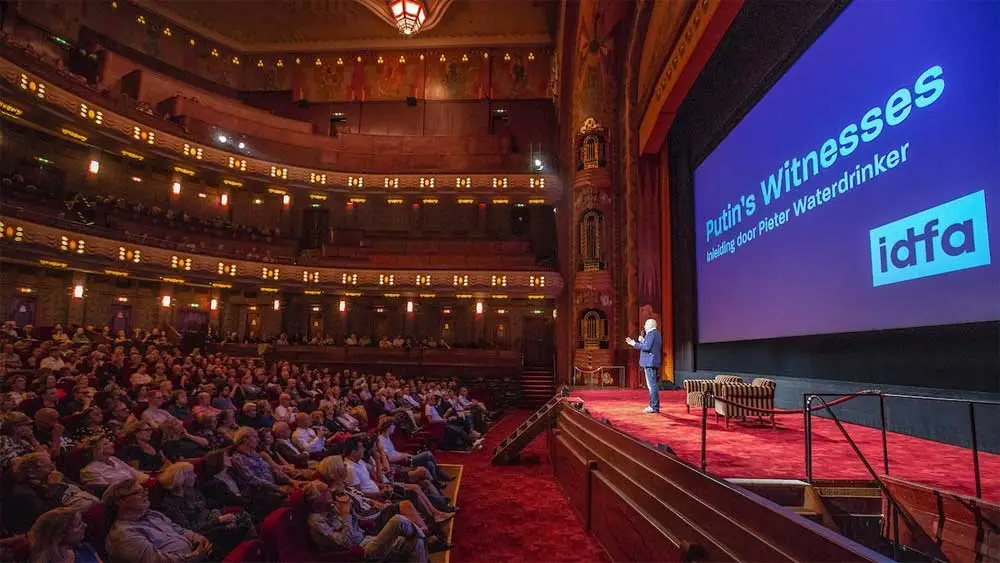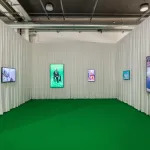
Several artists have pulled their work from the International Documentary Festival Amsterdam (IDFA) as the event continues to weather scrutiny over its response to a protest held in support of Palestine during the opening ceremony.
Among those artists are Basma Alsharif and Jumana Manna, both of whom are Palestinian, and Sky Hopinka, a member of the Ho-Chunk Nation and a descendant of the Pechanga Band of Luiseño people.
Since it kicked off on November 8, the IDFA has faced controversy. Its artistic director, Orwa Nyrabia, was seen applauding a protest at the opening, during which attendees chanted, “From the river to the sea, Palestine will be free.”
That chant, which also appeared on banners that were brought to this action, has proven polarizing in recent weeks. It has been heard at protests held in support of Palestine since the ’60s, and was more recently labeled “an aspirational call for freedom, human rights and peaceful coexistence, not death, destruction or hate,” by congresswoman Rashida Tlaib, who is Palestinian American and has been censured in Congress. But some Jewish and Israeli groups have said the chant is antisemitic, claiming that it can be read as a cry for Israel’s undoing.
As pressure mounted, Nyrabia and the IDFA issued an apology statement in which they called the chant a “hurtful slogan.” “That slogan does not represent us, and we do not endorse it in any way,” they wrote, calling that same day for a ceasefire in Gaza.
Then, on Sunday, in a separate statement, the festival seemed to walk back that sentiment, writing, “We are not ignoring, undermining nor criminalizing any of these positions and we fully respect and acknowledge the pain that is going around and the extreme urgency of these discussions while war is still on, and innocent civilians are still dying.”
Alsharif said over the weekend that she had withdrawn a film that was playing in a program as part of the festival and that she had left a jury for another section of the event.
“As Israel continues its Western funded ethnic cleansing and genocide of the Palestinians, it seems that @idfafestival felt strong-armed into making a damaging statement that equates a call for equal rights to all people in Palestine as antisemitic,” she wrote on Instagram. “I have run out of words and energy to explain why this is so damaging because we have been explaining it for 75 years and if after 75 years, in the middle of a genocide, in the space of a documentary festival, in a country that believes in freedom of speech: if one people’s voice is privileged over another, and only one people’s safety and security matters, then ultimately @idfafestival believes that one people’s lives are more important than another.”
Manna wrote on Instagram that the IDFA apology statement was “damaging” and then later clarified that she was pulling her film. She said the apology was part of “the McCarthy-esque reality we’re facing in Europe that obfuscates the state of apartheid in Palestine/IL and seeks to demonize and shut down solidarity with the Palestinian struggle,” and demanded that the festival open a dialogue with the Palestian Film Institute, which had denounced the IDFA.
Hopinka said on Monday that he had pulled his film in solidarity with his Palestinian colleagues, writing on Instagram that Nyrabi was in an “impossible position as the director of this festival, as an Arab, as a Syrian, and as a friend to so many of us.”
An IDFA spokesperson did not respond to a request for comment.

